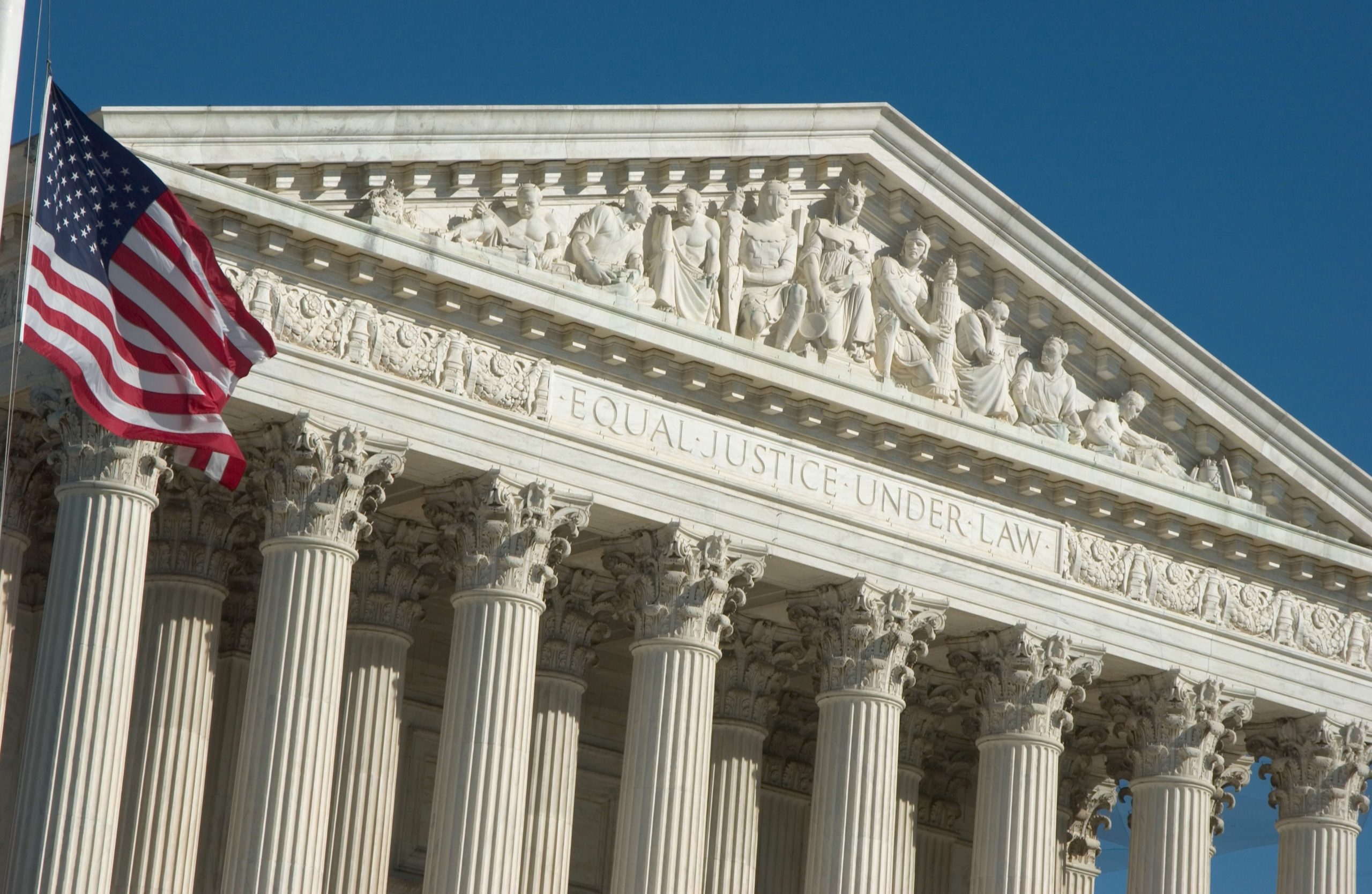Don’t let the executive abuse emergency powers to raid the Treasury
SYMPOSIUM
on Feb 21, 2023
at 9:15 am
This article is part of a symposium on the upcoming arguments in Biden v. Nebraska and Department of Education v. Brown. A preview of the cases is here.
Ilya Somin is a professor of law at George Mason University, and author of Free to Move: Foot Voting, Migration and Political Freedom. Parts of this article were adapted from material previously published at the Volokh Conspiracy blog, hosted by Reason.
On Feb. 28, the Supreme Court will hear oral arguments in two cases challenging the legality of President Joe Biden’s massive student-loan forgiveness plan. Because of the vast sums at stake – estimated at $400 billion or more – the fate of this policy is important in its own right. And if Biden prevails, it would set a dangerous precedent for presidential abuse of emergency powers and usurpation of Congress’ power of the purse. In these respects, Biden’s plan has much in common with Donald Trump’s effort to divert military funds to pay for his border wall.
The administration’s plan would cancel up to $10,000 in federal student-loan debt for borrowers earning up to $125,000 per year ($250,000 for married couples), and up to $20,000 for those with Pell Grants. The Justice Department’s legal rationale for the plan relies on a provision of the 2003 HEROES Act, enacted in the wake of the 9/11 attacks, which gives the secretary of education the authority to “waive or modify any statutory or regulatory provision applicable to the student financial assistance programs” in order to ensure that “recipients of student financial assistance … who are affected individuals are not placed in a worse position financially in relation to that financial assistance because of their status as affected individuals.”
The statute defines “affected individuals” as anyone who “(A) is serving on active duty during a war or other military operation or national emergency; (B) is performing qualifying National Guard duty during a war or other military operation or national emergency; (C) resides or is employed in an area that is declared a disaster area … in connection with a national emergency; or (D) suffered direct economic hardship as a direct result of a war or other military operation or national emergency.” The administration claims most beneficiaries of the loan-forgiveness plan come under D, in the sense that they have suffered “direct economic hardship” as a result of the national emergency of the COVID-19 pandemic. It also claims that virtually everyone in the United States qualifies under (C), because, in March 2020, then-President Trump declared the entire country a “disaster area” because of COVID.
But even for “affected individuals,” loan forgiveness is permissible only if the pandemic put them “in a worse position financially in relation to that financial assistance.” For the overwhelming majority, there is no proof that COVID is preventing them from paying back their loans or even making it significantly harder to do so.
The administration’s ultra-broad interpretation of the HEROES Act runs afoul of the Supreme Court’s recent rulings on the “major questions” doctrine, which requires Congress to “speak clearly when authorizing an [executive branch] agency to exercise powers of vast economic and political significance.” If the statute is ambiguous, courts must presume that Congress have not given the agency the power in question.
The court has recently used the major-questions doctrine to strike down dubious COVID-related uses of emergency powers by the Trump and Biden administrations in the CDC eviction moratorium and OSHA vaccine mandate cases. Much the same logic applies here. The authority to cancel hundreds of billions of dollars in student-loan debt is pretty obviously a power with “vast economic and political significance.” And the HEROES Act doesn’t clearly give the executive that much power.
Even if the statute were clear on this subject, such broad delegation might violate constitutional nondelegation requirements, which limit Congress’ power to transfer legislative power to the executive. Several recent decisions, including the vaccine mandate ruling, suggest that the court may be interested in strengthening the nondelegation doctrine.
Biden’s loan-forgiveness plan is not the first time a president has tried to leverage emergency powers to raid the federal treasury for purposes denied by Congress. In 2019, Trump used a dubious emergency declaration to try to divert funds to build his border wall, despite the fact Congress had repeatedly refused to authorize any such expenditure. Trump’s emergency declaration was bogus, the relevant statutes didn’t give him the power to transfer military funds even if he could declare an emergency, and Trump’s actions would have set a dangerous precedent, if allowed to stand. Democrats, including Biden, rightly condemned Trump’s border wall diversion.
Several court decisions ruled against Trump on the merits. Ultimately, the issue was resolved when Biden ended the border wall diversion upon taking office and Congress enacted legislation preventing future similar diversions of defense funds.
Unfortunately, Biden is now trying to repeat Trump’s heist on a larger scale, diverting some 40 times more federal funds. As with Trump, the use of emergency powers here is a pretext for achieving an unrelated policy objective rejected by Congress.
Elsewhere, I have explained why Biden’s abuse of emergency powers – like Trump’s – will probably cause more harm than good. Such massive loan forgiveness is likely to be a waste of federal resources, regressive, and inflationary. But, regardless of policy considerations, it is dangerous to allow the executive to hijack the Treasury for projects not authorized by Congress.
If the administration prevails, it will empower future presidents to use emergency declarations divert federal funds to their pet projects. Unfortunately, it is very easy for the president to declare an emergency under the National Emergencies Act, and there is a vast array of spending that could be tapped under the highly permissive standards advocated by the administration in this case. No one person should have unilateral control over the nation’s public funds. Even if you trust Biden with such power, you likely do not have similar faith in whoever the next Republican president might be.
In addition to the merits issues at stake, the administration also urges the court to dismiss the cases because of standing, claiming plaintiffs lack the type of “injury” required by standing precedent. Missouri, at the very least, has a strong claim to standing, because it has a state-owned student-loan servicer that stands to lose profits if some of the loans it processes are forgiven. Should the administration prevail on standing, it would make it difficult or impossible to file legal challenges to most illegal diversions of federal funds by the executive. I have addressed the standing issue in greater detail here, here, and here.
Congress should act to curb the overbroad scope of executive emergency powers. But until that time, the court should at least ensure that this authority does not become a blank check for executive circumvention of Congress’ power of the purse.






